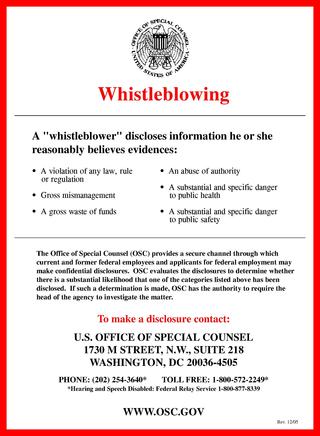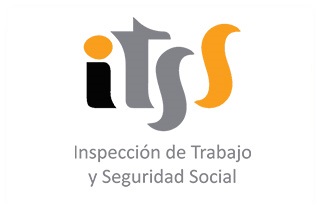
Johan Nygaardsvold was a Norwegian politician from the Labour Party who served as the 21st prime minister of Norway from 1935 to 1945. From June 1940 until May 1945, he oversaw the Norwegian Government-in-exile from London as head of the Nygaardsvold cabinet during the occupation of Norway by Nazi Germany.

The Home Office (HO), also known as the Home Department, is a ministerial department of the British Government, responsible for immigration, security, and law and order. As such, it is responsible for policing in England and Wales, fire and rescue services in England, visas and immigration, and the Security Service (MI5). It is also in charge of government policy on security-related issues such as drugs, counterterrorism, and ID cards. It was formerly responsible for His Majesty's Prison Service and the National Probation Service, but these have been transferred to the Ministry of Justice.
The Occupational Safety and Health Administration is a regulatory agency of the United States Department of Labor that originally had federal visitorial powers to inspect and examine workplaces. The United States Congress established the agency under the Occupational Safety and Health Act, which President Richard M. Nixon signed into law on December 29, 1970. OSHA's mission is to "assure safe and healthy working conditions for working men and women by setting and enforcing standards and by providing training, outreach, education, and assistance." The agency is also charged with enforcing a variety of whistleblower statutes and regulations. OSHA's workplace safety inspections have been shown to reduce injury rates and injury costs without adverse effects on employment, sales, credit ratings, or firm survival.

The Office for Standards in Education, Children's Services and Skills (Ofsted) is a non-ministerial department of His Majesty's government, reporting to Parliament. Ofsted's role is to make sure that organisations providing education, training and childcare services in England do so to a high standard for children and students. Ofsted is responsible for inspecting a range of educational institutions, including state schools and some independent schools. It also inspects childcare, adoption and fostering agencies and initial teacher training, and regulates early years childcare facilities and children's social care services.
Overtime is the amount of time someone works beyond normal working hours. The term is also used for the pay received for this time. Normal hours may be determined in several ways:

An inspection is, most generally, an organized examination or formal evaluation exercise. In engineering activities inspection involves the measurements, tests, and gauges applied to certain characteristics in regard to an object or activity. The results are usually compared to specified requirements and standards for determining whether the item or activity is in line with these targets, often with a Standard Inspection Procedure in place to ensure consistent checking. Inspections are usually non-destructive.
Established in 1840, His Majesty's Railway Inspectorate (HMRI) is the organisation responsible for overseeing safety on Britain's railways and tramways. It was previously a separate non-departmental public body, but from 1990 to April 2006 it was part of the Health and Safety Executive. It was then transferred to the Office of Rail and Road and ceased to exist by that name in May 2009 when it was renamed the Safety Directorate. However, in summer 2015 its name was re-established as the safety arm of ORR.

The Factory Acts were a series of acts passed by the Parliament of the United Kingdom beginning in 1802 to regulate and improve the conditions of industrial employment.
The Employment Standards Act, 2000 is an Act of the Legislative Assembly of Ontario. The Act regulates employment in the province of Ontario, including wages, maximum work hours, overtime, vacation, and leaves of absence. It differs from the Ontario Labour Relations Act, which regulates unionized labour in Ontario.

An employment agency is an organization which matches employers to employees. In developed countries, there are multiple private businesses which act as employment agencies and a publicly funded employment agency.
The Independent Schools Inspectorate (ISI) is approved by the Secretary of State for Education – under section 106 of the Education and Skills Act 2008 – to inspect private schools in England. These schools are members of associations, which form the Independent Schools Council.

The Gangmasters and Labour Abuse Authority (GLAA) is the foremost intelligence and investigative agency for labour exploitation in the UK. Its role is to work in partnership with police and other law enforcement agencies such as the National Crime Agency to protect vulnerable and exploited workers and disrupt and dismantle serious and organised crime.
An inspectorate or inspectorate-general is a civil or military body charged with inspecting and reporting on some institution or institutions in its field of competence. Inspectorates cover a broad spectrum of organizations which vary in a number of terms, notably whether and to the degree to which they become involved in criminal investigations; the extent to which they achieve independence from the institutions being inspected; as well as the nature of their inspection regimes and reporting processes.

The Employment Agencies Act 1973 is a United Kingdom act of Parliament and part of a wider body of UK agency worker law. It regulates the conduct of employment agencies which recruit and manage temporary and permanent labour. It applies to approximately 17,000 employment agencies operating in the UK. It was introduced by a private member's bill by Kenneth Lewis, member of parliament for Rutland and Stamford.
United Kingdom agency worker law refers to the law which regulates people's work through employment agencies in the United Kingdom. Though statistics are disputed, there are currently between half a million and one and a half million agency workers in the UK, and probably over 17,000 agencies. As a result of judge made law and absence of statutory protection, agency workers have more flexible pay and working conditions than permanent staff covered under the Employment Rights Act 1996.

The Employment Act 2008 is an Act of the Parliament of the United Kingdom which reformed a wide range of different provisions of UK labour law. It is an amending statute, and therefore simply altered pre-existing law to remedy perceived problems in the law's operation to do with dispute resolution, strengthen enforcement of the minimum wage and employment agency standards and to conform with updated case law on trade unions, in particular, ASLEF v United Kingdom.

His Majesty's Inspectorate of Constabulary in Scotland (HMICS) is a public body of the Scottish Government and reports to the Scottish Parliament. It has statutory responsibility for the inspection of the effectiveness and efficiency of the police service in Scotland.

A whistleblower is a person who exposes any kind of information or activity that is deemed illegal, unethical, or not correct within an organization that is either private or public. The Whistleblower Protection Act was made into federal law in the United States in 1989.
Immigration Enforcement (IE) is a law enforcement command within the Home Office, responsible for enforcing immigration law across the United Kingdom. The force was part of the now defunct UK Border Agency from its establishment in 2008 until Home Secretary Theresa May demerged it in March 2012 after severe criticism of the senior management. Immigration Enforcement was formed on 1 March 2012, becoming accountable directly to ministers.

The Labour and Social Security Inspectorate (ITSS) is a Spanish autonomous agency in charge of the control of the compliance with labour and social security legislation. It also offers technical advice and, where appropriate, conciliation, mediation and arbitration in these matters. The ITSS is, therefore, the apex of the Labour and Social Security Inspection System.
 Text was copied from this source, which is available under an Open Government Licence v3.0. © Crown copyright.
Text was copied from this source, which is available under an Open Government Licence v3.0. © Crown copyright.









